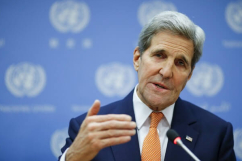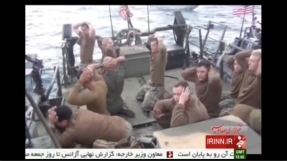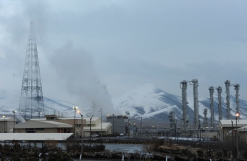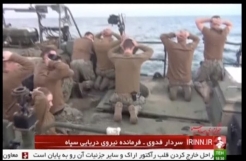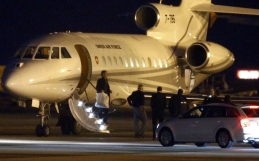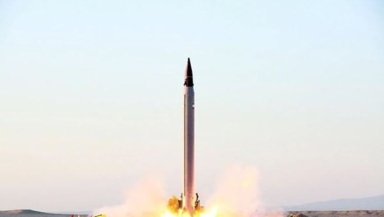
Making a sudden turn, the United States imposed new sanctions against 11 individuals and entities involved in Iran's ballistic missile programme just hours after announcing an end to the economic sanctions over Iran's nuclear programme this weekend and a deal to exchange four imprisoned American citizens for seven Iranians in U.S. detention, reports said.
U.S. officials said the sanctions are being imposed as a result of Tehran's firing of a medium-range ballistic missile, Fox News reported.
Last month, U.N. experts said in a report that the Iranian missile test in October violated sanctions banning Iran from launches capable of delivering nuclear weapons. The U.S. reportedly agreed with the U.N. experts' assessment.
The U.S. Department of the Treasury had been planning to announce the penalties in late December, but held off after Iran's foreign minister said they could have derailed the prisoner exchange that took place this weekend, U.S. officials said.
A U.S. Treasury official said Iran's ballistic missile programme poses "a significant threat to regional and global security."
However, even as the U.S. Treasury Department imposed new sanctions on Iranian individuals and entities, the U.S. State Department announced that the government had agreed to pay Iran $1.7 billion to settle a case related to the sale of military equipment prior to the Iranian revolution, according to a statement issued on Sunday, CNN reported.
Iran had set up a $400 million trust fund for such purchases, which was frozen along with diplomatic relations in 1979.
To settle the Iranian claim, which had been hanging in the Hague Tribunal since 1981, the U.S. is returning the money in the fund along with "a roughly $1.3 billion compromise on the interest," the U.S. State Department statement said.
"Clearly, it's in the U.S. interest to resolve these (claims) in ways that reduce our risk," a senior administration official told reporters in a conference call. "And we believe that this is a very positive settlement for us."
Aside from this, the U.S. is unfreezing Iranian assets, estimated at between $100-$150 billion, as part of the nuclear deal.
While U.S. officials say Iran will only pocket about $50 billion of those assets after legal claims, the announcement of this new settlement is expected to fuel criticism that the Obama administration is funding a regime bent on destroying the United States.










